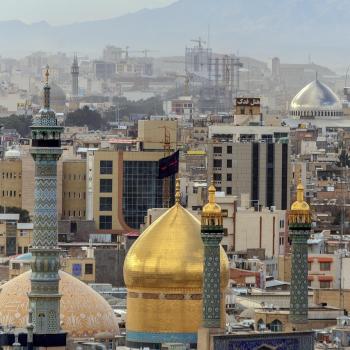During this election year I think it is important for you to know who I am voting for. I am voting for (sorry I ran out of ink just then)
Okay, I have been thinking about how to address such issues at the Church. I know some of you want to hear more on this topic from me. And I agree that such a discussion is very relevant in the world we live in.
I, also, agree that it is important that the Gospel is made relevant to the world. That is the job of a pastor.
Before addressing the issue of politics in the Church today let me note something of great importance. I have been preaching politics since day one. After all, the Gospel is intensely political!
The politics of Jesus are, however, even for a Christianized western world, highly countercultural. As a result, the politics of Jesus, don’t look like the politics of our world. So perhaps some of you might be thinking that I haven’t addressed politics. But I have. Well sorta.
I think it is imperative that we come to terms with and grasp the significance of Jesus’ politics before we can take on the political world of our day.
The politics of Jesus are focused on His kingdom. Yes, they have significant implications for the kingdoms of the world also. The Church, however, needs to grapple with and dwell in the politics of Jesus before we get too wrapped up in the politics of this world.
This, in fact, is where I think the Church is erring greatly today. The Gospel transcends politics. The Gospel gives us a framework for understanding the world and the things in it. But God’s kingdom is not of this world. Christ is the King of Kings. And someday every king and every nation will bow before the True King.
As for politics and the Church today, let me provide some opening thoughts.
First, politics in the contemporary world are often too loaded. Many Christians have political convictions that are too closely tied to their conception of the Gospel.
We must be careful here. Jesus clearly distinguishes His kingdom from the kingdoms of the world (cf John 18:36). Because some in the church today adhere to these strong convictions, pastors need to be cautious. After all, dissenting from their positions will only upset some.
This does not mean that we can’t talk politics in the Church. We need to. After all, the Gospel must be made relevant to the present day. I am just saying that we must be careful in doing so. In fact, I think that such conversations are better reserved for a classroom—where a conversation can take place—than from a pulpit.
Secondly, preachers have to be careful with what comes out of the pulpit. The pulpit is a place of great authority in the Church today. Sometimes too much authority. Pastors must choose their words carefully.
Thirdly, the job of the preacher is to teach the Word. In teaching the Word we are to exhort and encourage God’s people to be God’s people. Indeed part of being God’s people is to shine the light of Christ in the world and to the world.
As a result, the Gospel has to be made relevant to the world. But, we must note that neither Jesus nor Paul addressed matters of Roman political, economic, or social policies head on. They never condemned slavery, for example, which was excessive to say the least in the Roman world.
What they did address was how the Church was to be the Church in the midst of Rome. Thus, slaves are to obey their masters and masters are not to be harsh towards their slaves (which, by the way, is a statement that undermines slavery. After all, being harsh with a slave was a means of keeping all one’s slaves in check).
What Jesus and Paul then do is address how Christians are to think and behave in the midst of culture. We find that when Christians follow the way of Christ they end up undermining culture. Jesus was not concerned so much with how we vote. He was concerned with who we are. The preachers job is to help the church become the people that Christ wants us to be. Once that happens, how we vote should take care of itself.
Fourthly, we must recognize that inside and outside the body of Christ are people of diverse convictions. To trumpet a political agenda from the pulpit may result in ostracizing many.
Preachers must be careful about drawing lines in the sand that result in some feeling as though they are out and not welcome because their political views dissent from the establishment. Such preaching may even result in non-Christians rejecting the Gospel because they don’t agree with the pastor.
Many non-Christians reject the Gospel because they think there is no room for them and their political views in the Church. For someone to reject Jesus because they do not agree with the preachers political agenda is a shame.
Paul said he became all things to all men that he might win the more (1 Corinthians 9:22). If the preachers political convictions might cause someone to reject the Gospel, then the preacher should save those convictions for an occasion in which a discussion can take place. The pulpit just doesn’t allow for discussions.

















